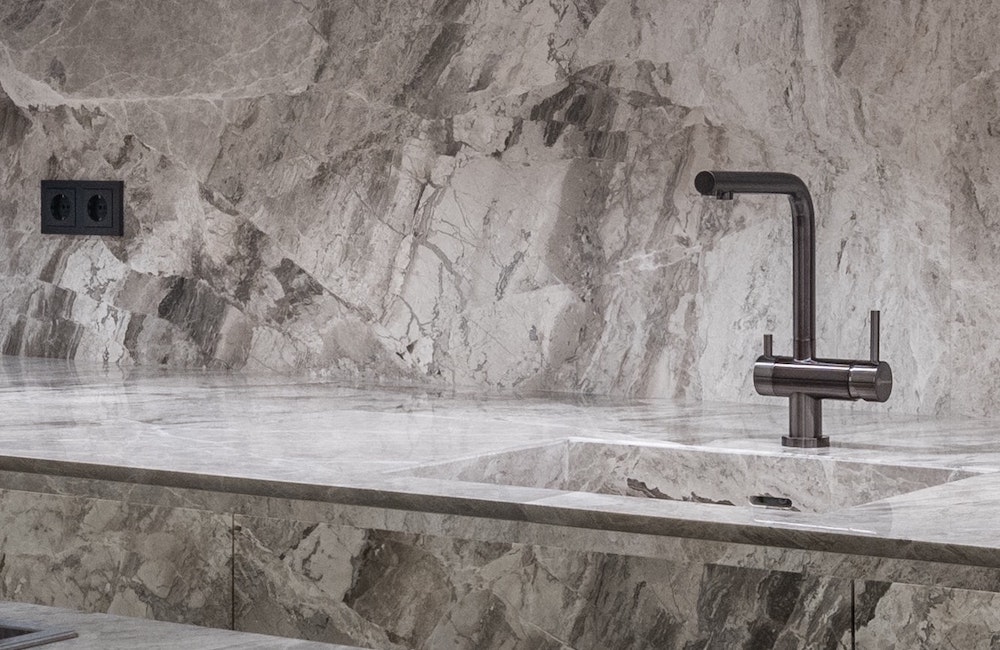Should I Turn My Boiling Water Tap Off at Night?

Hot water at the flick of a switch has become the norm for many of us, thanks to the advent of boiling water taps.
The convenience and efficiency are unquestionable, but with their proliferation comes a series of questions about their operation.
One question that is increasingly becoming popular among users is: Should you turn a boiling water tap off at night?
The need to balance safety, energy efficiency, and appliance longevity can make this decision a tricky one.
Click here to view our range of instant Boiling Water Taps.
Should I Turn Off Boiling Water Tap at Night?
In short... In most cases it doesn't make sense to turn an instant boiling water tap off at night.
Most models are very energy efficient and most of the cost of the taps is when you are actually running them to create hot water.
But to go into detail on deciding whether to turn off your boiling water tap at night can depend on a few factors, primarily your usage patterns, the model of your tap, and your concern for energy efficiency and safety.
Let's discuss these factors in detail:
- Usage Patterns: If you frequently use hot water late at night or early in the morning, it might be more convenient to leave the tap on. This ensures that you have instant access to boiling water when you need it. However, if you rarely use hot water during these hours, turning the tap off can save energy.
- Tap Model: Some boiling water tap models come with energy-saving modes that lower the temperature of the water during periods of inactivity, thus reducing energy consumption. If your tap has such a feature, you might not need to turn it off at night.
- Energy Efficiency: Keeping the tap on means it maintains the water at a high temperature, which can consume energy. If energy conservation is a priority for you, turning off the tap at night could contribute to savings on your energy bills.
- Safety Concerns: While boiling water taps are generally safe to leave on, turning them off can provide peace of mind, particularly in households with children or vulnerable adults.
In conclusion, whether or not to turn off a boiling water tap at night is a decision that should be made based on your household needs and the specifics of the tap model.
If in doubt, consult the user manual or contact the manufacturer for guidance.
- Related Post: How to Descale a Boiling Water Tap?
Do Instant Boiling Water Taps Use Energy When They Are Not Being Used?
Yes, instant boiling water taps do use energy when they're not in use.
The reason behind this is the nature of their design.
Instant boiling water taps work by maintaining a tank of water at near-boiling temperatures so it's ready for immediate use when required.
To achieve this, the tank has to keep the water heated, which consumes energy.
Even when not in use, energy is expended to keep the water at the set temperature due to the loss of heat over time.
This is often referred to as 'standby power' or 'phantom load'.
However, modern designs of instant boiling water taps have made significant improvements in energy efficiency.
Many are equipped with excellent insulation to minimise heat loss and thus reduce the energy used to maintain the water temperature.
Some models also feature an energy-saving mode, which lowers the temperature of the water during extended periods of inactivity (for example, overnight), further reducing energy consumption.
While these taps do use energy in standby mode, the amount is relatively small compared to the energy required to heat cold water to boiling point each time it's needed.
- Related Post: Are Boiling Water Taps Eco Friendly?
Final Thoughts on Turning Off Boiling Water Taps at Night
Boiling water taps have revolutionised our kitchens with the gift of instant hot water, a convenience that many of us would now find hard to live without.
However, like all appliances, they also come with their set of considerations and potential confusions, such as whether or not to turn them off at night.
While there's no one-size-fits-all answer to this, the decision ultimately boils down to your usage habits, the specific model of your tap, and your individual preferences around energy efficiency and safety.
If your tap comes with an energy-saving feature and you use hot water frequently during the late-night or early morning hours, leaving it on might be the right choice for you.
On the other hand, if energy conservation is high on your agenda and your usage of hot water is limited during these hours, turning it off could help save on your energy bills.
Similarly, for those with safety concerns, particularly in households with young children or vulnerable adults, switching the tap off might offer an added layer of security.
Remember, the key to making an informed decision is to understand how your appliance works and how you use it.
So, spend some time getting to know your boiling water tap and your usage patterns.
And when in doubt, don't hesitate to reach out to the manufacturer or a professional for some more advice.

